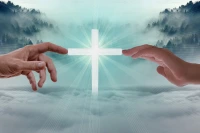There doesn’t seem to be any compelling evidence in scripture that each one of us has an individual “guardian angel” assigned to us.


There doesn’t seem to be any compelling evidence in scripture that each one of us has an individual “guardian angel” assigned to us.

Just because something is old doesn’t mean it can’t help us today. The Bible is God’s word to humanity. Even people who don’t accept what the Bible says about God and Jesus and the condition of the human race will agree that it is the most influential book ever written.

The Bible is the only holy book that roots itself in history so thoroughly and without error. And it contains 2500 prophecies of which 2000 have already been fulfilled to the letter.

Did the Holy Spirit actually speak directly to the people in the Old Testament, or was it God?

This is one of the truly great and difficult controversies of the church and is one of the big mysteries of scripture.

A common misunderstanding of terminology.

Two hard questions:

How does your personality respond to God’s calling?

Why doesn’t God just forgive us? Why does anyone have to suffer at all?

Having the mind of Christ taught in the Sermon on the Mount and responding to the current moment with Jesus’ spirituality of love—surrender, sacrifice, and service—are the definitive indications of spiritual growth.